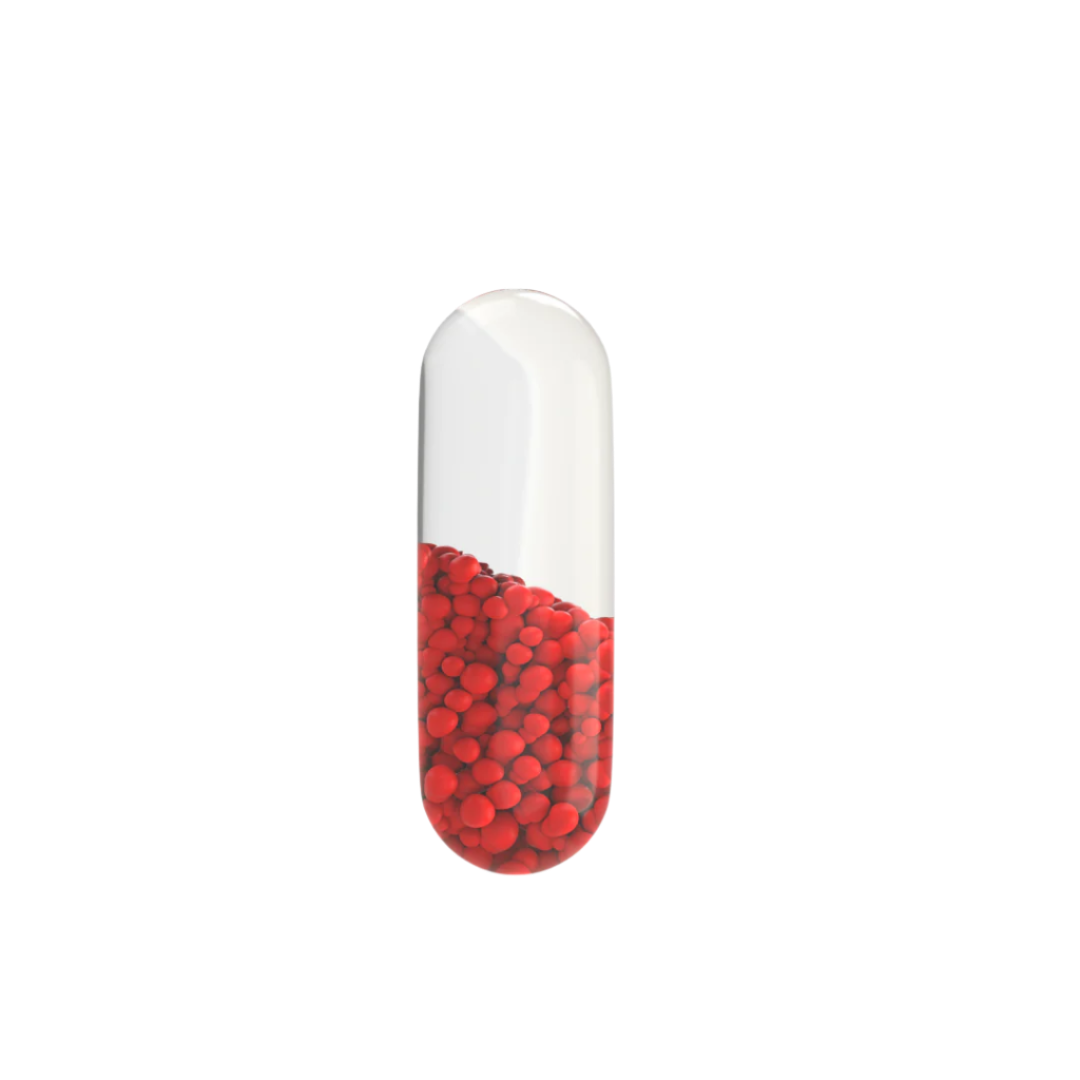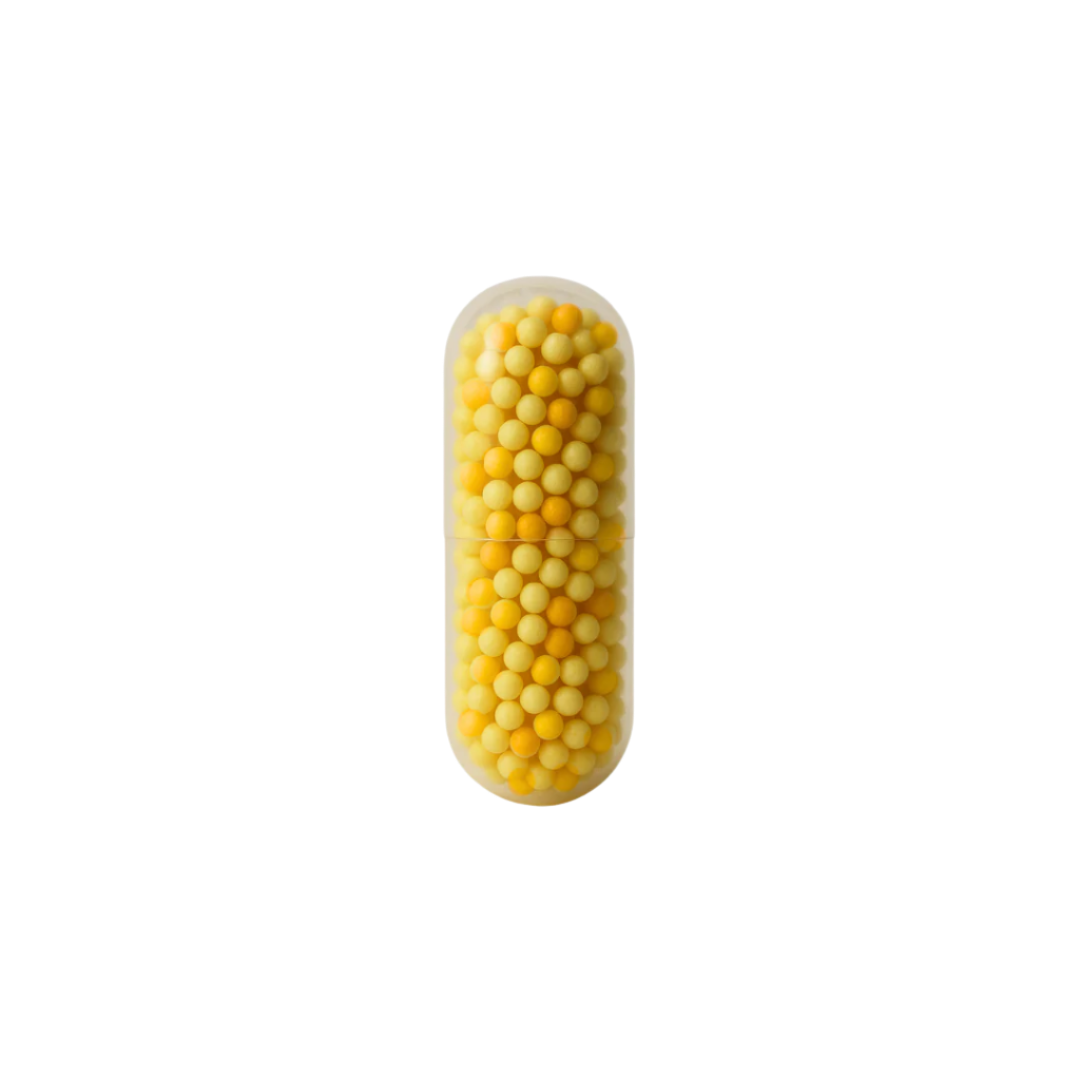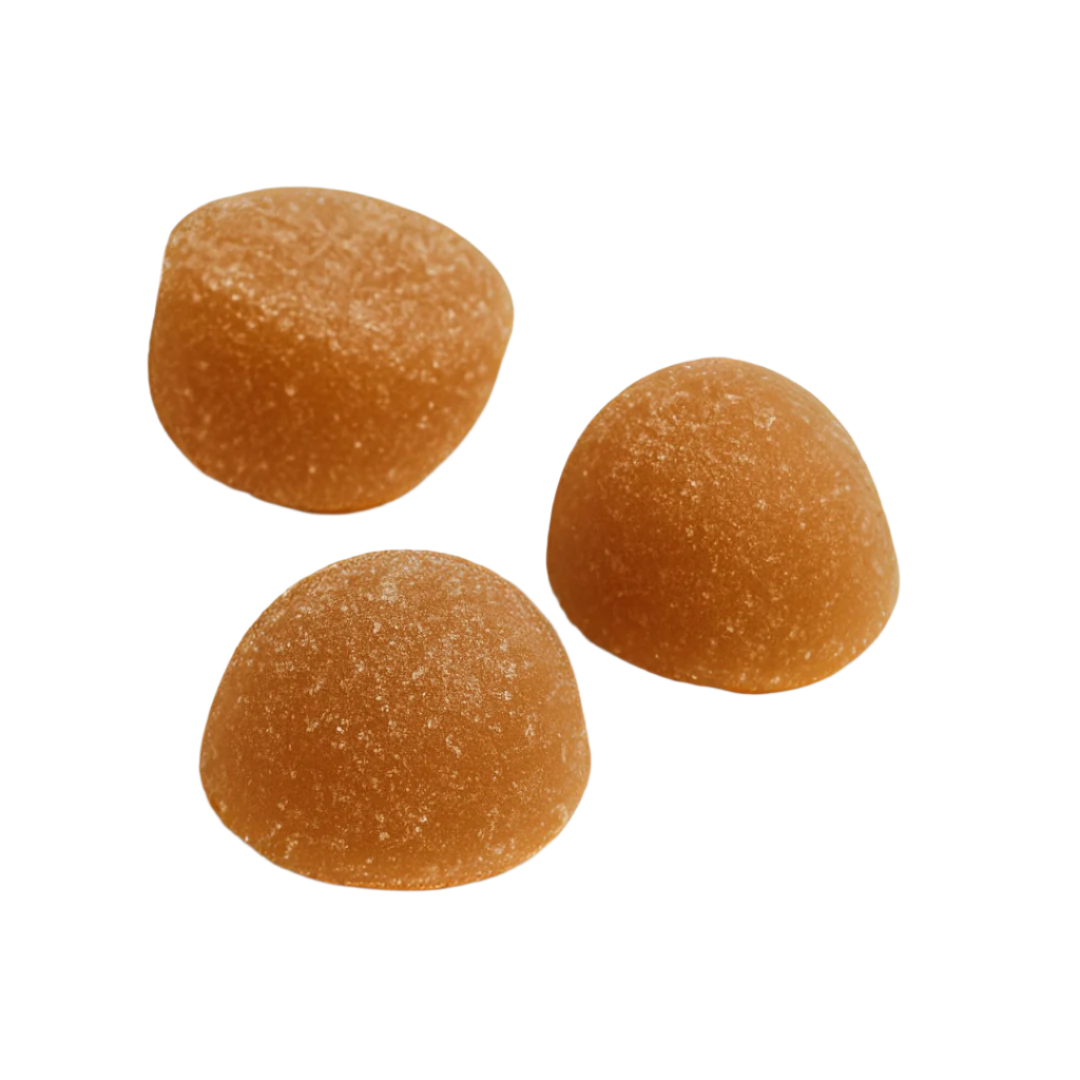4 best healthy morning drinks that will wake you up quickly

The most important points
- Whether we like it or not, the global economy revolves around morning people. So what do you do if you're a night owl? You drink caffeinated beverages in the morning. Although most of these drinks have negative health effects, some of them are actually healthy.
- Contrary to what their reputation might suggest, breakfast tea and coffee are healthy morning beverages - as long as you don't drown them in milk and sugar. But both have a few drawbacks, namely poor sleep patterns and restlessness.
- Then there are the low-calorie alternatives - green tea and kombucha. While these two options will give your nervous system a little boost without being high in calories, they are not good for your digestive system.
- If you're looking for a natural morning energy boost, look no further than B・SYNC ON - the world's first clinically tested wake-up pill made entirely from natural supplements. Even better, B・SYNC ON aligns your sleep rhythm with your life schedule.
introduction
Not everyone is a morning person—and that's a good thing. But our entire economy revolves around morning people—stores open at sunrise, and offices start work at 9 a.m. So what do you do if you're not one of the lucky few who wakes up every morning full of energy? You have cup after cup of caffeinated beverages to wake you up so you can be as productive as a morning person.
But here's the problem - not all of these drinks that keep you awake are good for you. Some of them are pure sugar bombs, while others contain so much caffeine that they can make your heart beat too fast. If you consume too many unhealthy drinks over a long period of time, you'll soon notice that they have long-term negative effects on your body.
But that doesn't mean you have to drastically change your morning routine and give up drinks that wake you up. Luckily, there is a wide range of healthy morning drinks available. In this article, we'll introduce you to some of the best drinks that will wake you up in the morning. We'll tell you all the benefits - and also discuss the possible disadvantages.
The best morning drink - a short guide

Some of the most popular drinks that give you energy in the morning are actually a double-edged sword. Sure, a delicious cappuccino with chocolate sprinkles on top gives you an instant sugar rush that boosts your morning productivity. But what happens when the effects of the caffeine wear off? You start to feel sleepy - and then you feel the need to drink another cappuccino.
Before you know it, you've had three cups of lattes before lunch - that's about 500 calories, or 25% of your daily calorie intake. As you can imagine, that's far from a recipe for a healthy lifestyle. And it's not just about the weight you'll gain. According to recent research from Jain et al., caffeine addiction is very real - and it can lead to disastrous physical and psychological consequences.
Luckily, you don't have to sacrifice your well-being to be productive in the morning. There are plenty of drinks that will give you energy without putting your health at risk - let's take a look at them.
Breakfast tea
Breakfast tea is one of the most popular morning drinks in the UK. It is a strong blend of different types of black tea that is usually drunk in the morning. While it is true that breakfast tea contains more caffeine than other types of tea, it is still much less caffeinated than coffee. This is why breakfast tea is one of the best naturally caffeinated drinks for people who don't like coffee.

Breakfast tea is not only a great pick-me-up in the morning, but it also has a whole host of health benefits. For example, it contains many different types of antioxidants. Among them are flavonoids, which are also found in vegetables and can prevent heart disease. And there are many more. These are just some of the health benefits that breakfast tea can offer:
Undoubtedly, breakfast tea is one of the best things to drink in the morning. But it does have its drawbacks. As with coffee, excessive consumption of breakfast tea is associated with poor sleep and restlessness.
Coffee
Coffee? Healthy? Yes, it is! Unless you pour half a liter of milk and three spoonfuls of sugar into every cup you drink. According to the prestigious John Hopkins University, coffee is one of the best drinks to give you energy in the morning. As the name suggests, coffee is full of natural caffeine - a stimulant that creates a feeling of alertness and excitement in the human body. Just make sure you don't add sugar - high sugar and caffeine content easily mess up your circadian rhythm.
These are the healthy coffee options you can drink:
- Espresso: a concentrated amount of coffee without milk or sugar. It can be quite strong, so you should drink it slowly! When it comes to drinks that give you energy, it doesn't get much better than espresso.
- Cortado: This tasty little coffee drink originates from sunny Spain and is made of equal parts hot milk and espresso. This way, the coffee loses a little of its strong flavor but retains all its power to wake you up. The Cortado is undoubtedly one of the best drinks in the morning.
- Americano: An Americano is an espresso diluted with hot water. Depending on the strength of the coffee and your personal preference, you can serve it ½ and ½ or ⅓ espresso to ⅔ water.
Not only does coffee give you much-needed energy in the morning, but it is also packed with antioxidants that reduce internal inflammation and protect your body from potential diseases. According to a recent study by BMC Medicine, a cup of coffee a day can significantly reduce the risk of developing liver and colon cancer over the years.
However, you should avoid drinking coffee after 5 p.m. While it's true that this beverage has many health benefits, research also shows a clear link between coffee consumption and sleep problems. If you drink too much coffee, you're like a snake eating its own tail - you can't sleep properly, which makes you even more tired... which in turn leads to you drinking more coffee!
Green tea
This highly hydrating beverage is one of the most underrated healthy morning drinks you can drink. Like all teas, green tea is made from the Camellia sinensis plant. The difference, however, is that the leaves and buds of this type of tea have not undergone the oxidation process that occurs in other types of tea. As a result, green tea is particularly rich in polyphenols - a natural compound that reduces chronic inflammation and helps lower blood pressure.
Just like breakfast tea and coffee, green tea contains caffeine - but in much smaller amounts than those beverages mentioned. For this reason, it can be the best morning drink for people with a low tolerance to caffeinated beverages. And because green tea is incredibly low in calories, you won't gain weight if you drink it regularly.

So what are the disadvantages of green tea? The biggest one is that it contains tannins, which increase the acidity in your stomach. This means that excessive consumption of green tea can easily lead to nausea, stomach irritation, and constipation. Drinking too much green tea can even lead to diarrhea, as caffeine has a laxative effect on the body. This is especially true for concentrated green teas like matcha tea.
If you have a sensitive stomach, you may want to avoid green tea.
Kombucha
In recent years, kombucha has taken the healthy morning beverage world by storm. It's not hard to see why. Made primarily from black tea, this lightly caffeinated beverage originates from China, where it is regularly consumed for its many health benefits. Kombucha is made by fermenting sweetened tea with bacteria and yeast - a process that gives the drink its probiotic functions. During this fermentation phase, kombucha harvests healthy tea fungi that give it its strong flavor.
One of the most popular healthy morning drinks, kombucha is known to boost metabolism, making it an ideal weight loss tool. In addition, its positive effects on the gastrointestinal tract are scientifically proven. Today, kombucha is usually recommended for people who suffer from irritable bowel syndrome, constipation or bloating. Since kombucha can help the body process monosaccharides, it can also lower blood sugar levels.
But for all its benefits, kombucha also comes with some risks. First of all, it contains live bacteria. This is the main reason why it is not recommended for pregnant women. The worst part is that sometimes homemade kombucha is not prepared properly because it ferments too much - if this happens to you, you will have to go to the bathroom regularly for a few days.

As we've shown you, even the newest, most innovative drinks designed to keep you awake have side effects to contend with. But what if we told you there's a healthy, natural supplement you can take without putting your health at risk?
Charge your morning with B・SYNC ON
It's not easy being a night owl. Your body tells you to go to sleep late at night, but you have to get up early in the morning to go to work or take the kids to school. Sure, you can drink one cup of tea or coffee after another, but wouldn't it be better to wake up naturally and have enough energy every morning while taking care of your body?
This is B・SYNC ON - the world's first clinically proven wake-up pill. B・SYNC ON is a slow-release pill that naturally boosts your morning energy levels and is packed with natural ingredients including vitamins B5 and B12, zinc and caffeine. It's simple: you take it before bed and the natural active ingredients are released into your body around 7 hours after you take the pill. This means you can get a full night's sleep and wake up full of energy to tackle any challenge - all without having to add extra calories to your body or bother with wake-up drinks.
And that's not all. B・SYNC ON not only gives you a much-needed energy boost, but also aligns your circadian rhythm with your life schedule. This means you go to sleep and wake up at the same time every day, significantly reducing tiredness and fatigue. It also increases your concentration, alertness and performance, and improves your mood.
So if you want to say goodbye to morning fatigue and bad mood, you know what to do - buy your B・SYNC ON Wake-up capsules today and start treating your body the way it deserves. Thanks to the super-fast delivery options, you can start the treatment in just a few days - just in time for that important meeting!
FAQ
What should I drink to wake up in the morning?
It all depends on what you want - if you need an instant energy boost, have a strong coffee with no or very little milk. If you're looking for something lighter, drink breakfast tea, green tea or kombucha. Or you can take the B・SYNC ON Wake-up Pills and give your body even more energy - all without sugar and extra calories.
What is the healthiest drink in the morning?
Unfortunately, there is no clear answer to this question. In terms of calorie consumption, green tea is generally considered the healthiest drink with natural caffeine, but even this drink has a number of negative health effects. The most important thing is to reduce your milk and especially sugar consumption when consuming energy drinks in the morning.
Which drink gives you quick energy?
Coffee is undoubtedly your favorite drink when you're looking for an energy boost. But beware: While it's true that coffee makes you feel refreshed and focused for a while, it only has a short-term effect on your brain and nervous system. This means that you'll experience an energy comedown once the effects of the coffee wear off.
How can I increase my energy when I'm tired?
If you're tired and need a quick energy boost, a caffeinated drink - like coffee or breakfast tea - can help. But if you're suffering from chronic tiredness or fatigue and want to do something about it, it all starts with sleep. Make sure you get enough sleep on a regular basis, and try to go to sleep and wake up at the same time every day.
References
- https://pubmed.ncbi.nlm.nih.gov/28174076/
- https://bmcpublichealth.biomedcentral.com/articles/10.1186/s12889-021-10991-7
- https://www.hopkinsmedicine.org/health/wellness-and-prevention/9-reasons-why-the-right-amount-of-coffee-is-good-for-you
- https://pubmed.ncbi.nlm.nih.gov/9759559/
- https://pubmed.ncbi.nlm.nih.gov/24290641/







